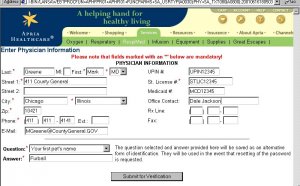
What is a Healthcare Providers?
 Author: Jonathan Mermin, MD, MPH, (RADM, USPHS),
Author: Jonathan Mermin, MD, MPH, (RADM, USPHS),
Director of CDC’s Nationwide Center for HIV/AIDS,
Viral Hepatitis, STD, and TB Prevention.
Gonorrhea could be the 2nd mostly reported infectious disease in the usa, with over 800, 000 infections projected to take place yearly. These gonorrhea germs are frustratingly nimble within their power to become resistant to antibiotics used to take care of all of them, including sulfonamides, penicillin, tetracycline, and fluoroquinolones. That trend is continuing, with a new report from CDC documenting gonorrhea’s decreasing sensitiveness to 1 of the two staying drugs open to approach it – azithromycin.
Outcomes from CDC’s Gonococcal Isolate Project (GISP), which tracks for early-warning signs of weight to ideal treatments, show that gonorrhea’s susceptibility to azithromycin recently declined. Paid off susceptibility implies that the medicine was less efficient at stopping the germs from growing than before. The sheer number of isolates with reduced azithromycin susceptibility increased above 300 % from 0.6per cent in 2013 to 2.5per cent in 2014. This is the highest percentage of paid off azithromycin susceptibility since tracking the medication began significantly more than two decades ago.
Decreasing azithromycin susceptibility occurred in all parts of the country and among men and women.
That is concerning. Increased azithromycin opposition will diminish our capability to heal patients. You can find not a lot of alternatives for managing gonorrhea in the event that bacteria become resistant to existing remedies.
Since 2012, CDC features recommended that healthcare providers treat gonorrhea illness with a dual treatment protocol: a 250 mg intramuscular dose of ceftriaxone in conjunction with a 1 g oral dose of azithromycin. No isolates in GISP had a reduced susceptibility to both drugs, indicating continued effectiveness associated with recommended two-drug program.
Listed here is a listing of activities that healthcare providers usually takes today to greatly help deal with antibiotic-resistant gonorrhea:
Thank you for your attention to STD treatment and avoidance also to helping us preserve the rest of the treatments for gonorrhea.
byShare this Post
Related posts
Lets talk braces
Have you been dreaming of a gorgeous smile and envied those people who have perfect teeth for a long time? You definitely…
Read MoreHow to maintain health during times of stress?
A modern person experiences the same stress on weekdays as on a dark street. As a result, the nervous system is depleted…
Read More
















